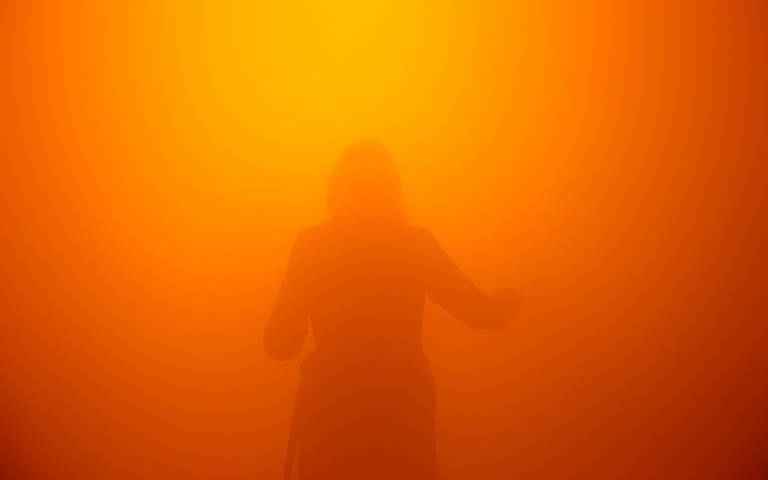
Research
Subject
Sensory Experience in Human Building Interaction
First and second supervisors
- Miss Ava Fatah gen. Schieck
- Dr Daniella Romano
Abstract
This research investigates sensorial experience in relation to Human-Building Interaction (HBI) – the study of the interface between a building’s occupants, physical space and the objects within it – with a focus on museum and gallery environments.
Museum environments increasingly to adopt digital technologies to increase visitor interaction and engagement with exhibits and collections. Some of these new digital technologies create an immersive, sensorial and whole-body experience. This project combines elements of architecture, computer science, museology and media studies. The overall objective is to understand how visitors perceive and interact with different sensory environments. This will be achieved by analysing data relating to cognitive and physiological responses, as a way to identify new tools and methods in the design of sensory environments.
The principal questions of the research are: how can architectural designers build sensory experience within a museum setting, and how do visitors respond to these sensory environment? What kind of tools would be useful to capture and experiment with museum-user movements? And what aspects of visitor experience of sensorial spaces are determined by a building’s design?
Biography
Busra is an architect and researcher. She graduated with a distinction in Architecture and Urbanism MA from the University of Manchester. She has worked as a research assistant at architectural practices, and is presently a research candidate in the Architectural Space and Computation MPhil/PhD programme at The Bartlett School of Architecuture, UCL. Busra is also a UCL Sustainability Ambassador working in collaboration with Camden Council.
Image: Your Blind Passenger, Studio Olafur Eliasson at Tate Modern, Photograph by Busra Berber.
 Close
Close

